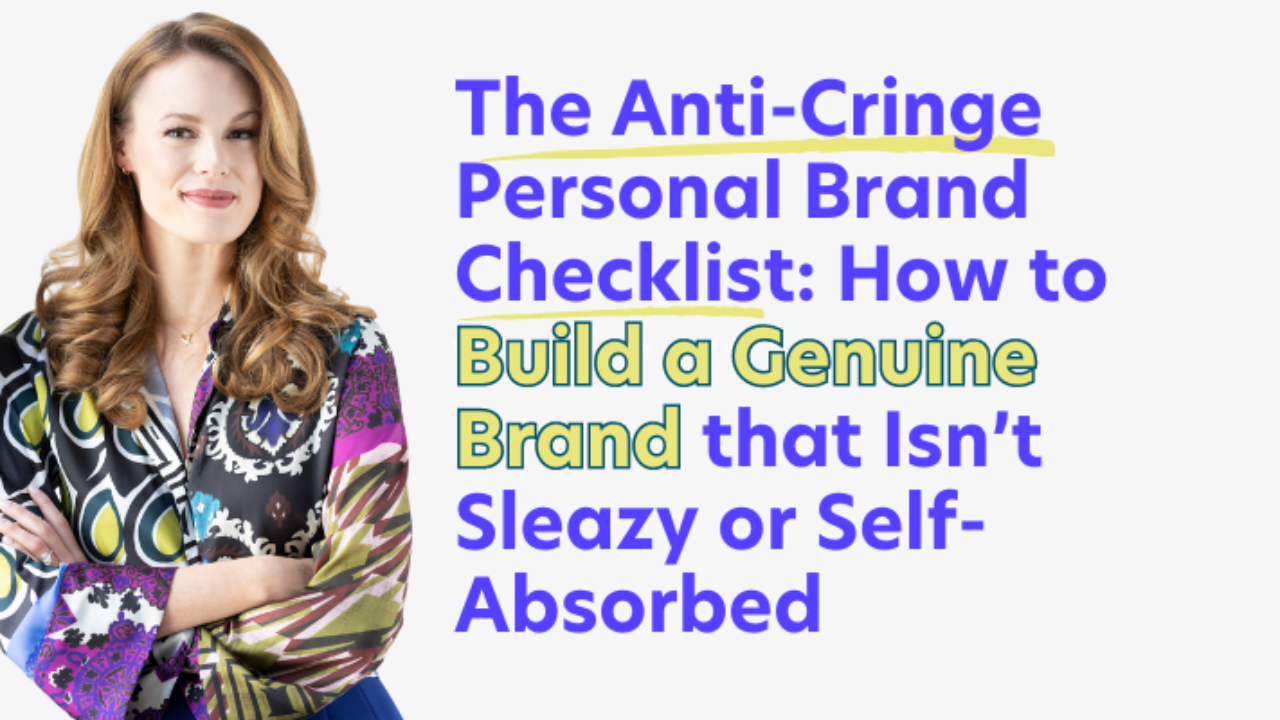5. Tag a buddy to check your ego.
After creating content, I immediately walk away and kick it over to my director of operations and my assistant to give it an “ego sniff test.” I often ask them how the content lands for them, if they think it’s valuable, and what their takeaways are. If either one of them waffles in answering these questions, it’s time to take it to the cutting room floor. Similarly, I’ve sent content to some of my best friends. No one is better at calling you on your bllsht quite like your besties.
6. Watch your language.
No, I don’t mean cursing. I mean thoughtfully review your content paying close attention to how often you say “I/me” and how often you use “you.” If you are me, me, me-ing all the way home (hehe) then it’s typically a good indicator you’ve taken your eye off your audience.
Overuse of first-person pronouns also makes you seem less credible. A study by the University of Texas revealed that when people overuse the word "I," they're usually in positions of lower authority or power.
"Frequent 'I' users subconsciously believe they are subordinate to the person to whom they are talking," shares Elizabeth Bernstein.
When trying to build a brand around thought leadership and authority, the unconscious use of this pronoun can actually work against you.
Excessive use of the word "I" also creates a barrier between you and your audience. Most people consume content to figure out what's in it for them. When you "me-speak" throughout, you decrease the opportunity for your content to connect in a way that will eventually spur someone into action (that action rightfully being to reach out to you).
7. Check for hyperbole and other words that silently undercut your credibility.
Similar to the word “I” and “me,” excessive use of aggrandizing language usually turns audience members off. We’ve all seen the Facebook ads that boast about a “23-year-old who went from ‘living in their parents’ basement’ to making 7 figures plus a year!”
Look, in the good year 2023, we’ve been around the internet block enough times to know scammy, overreaching language when we see it. I’m not saying don’t use helpful facts and figures to fortify your message, but I am saying to stay away from the “as seen on tv” dictionary of:
“the very best”
“totally awesome”
“you won’t believe it”
…or anything else that likely exited Billy Mays's mouth on a 2 am infomercial.
The Recap:
- Personal branding can be sleazy, but when done right, it should be anything but.
- Keep your eyes on the prize — helping your audience, and you’ll give yourself guardrails to keep your ego in check.
- When in doubt, use the list of 7 filters above to check the cringe at the door.
|





